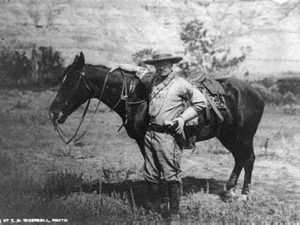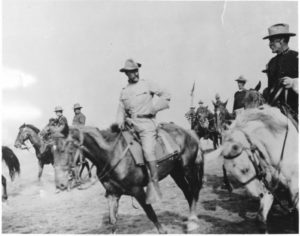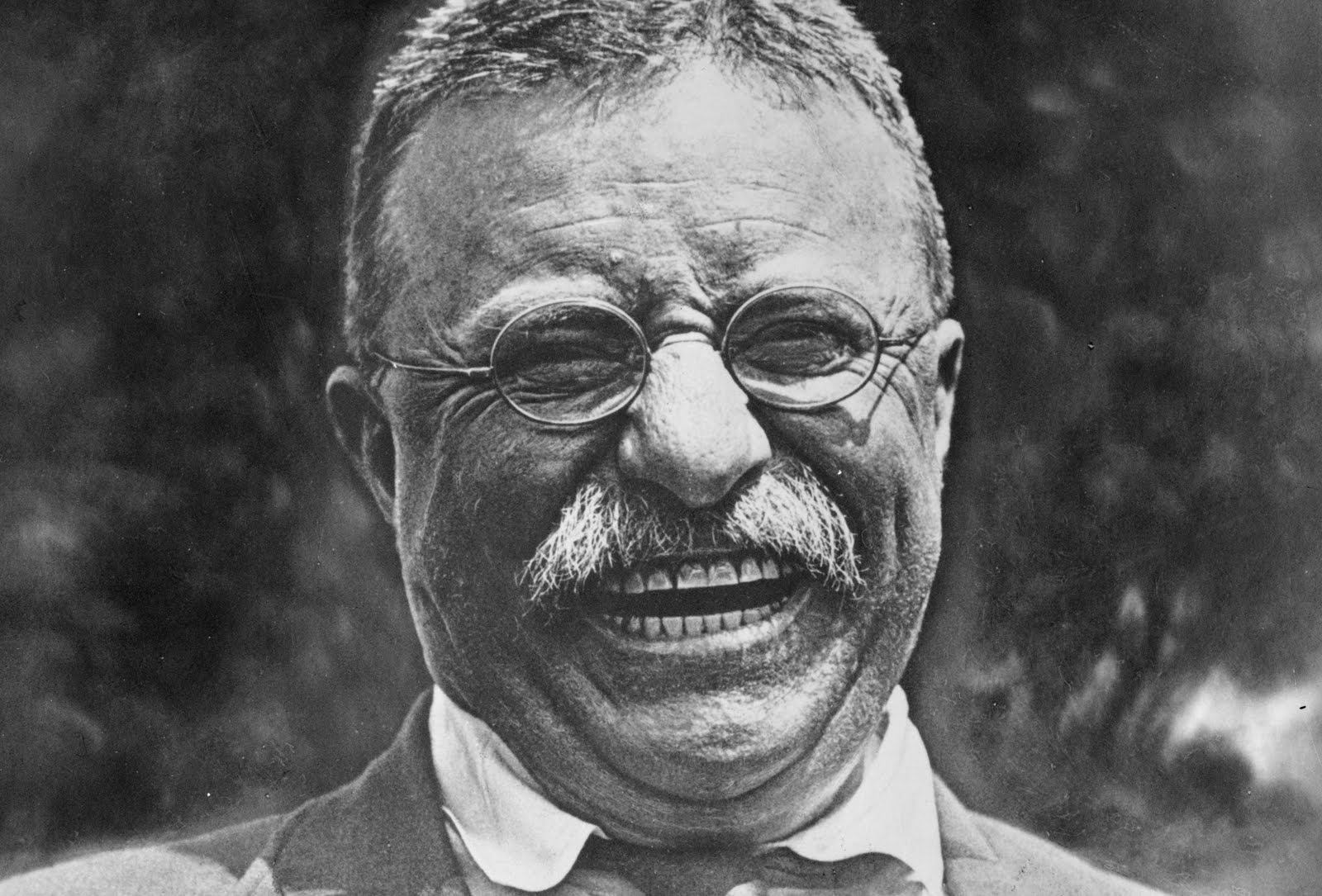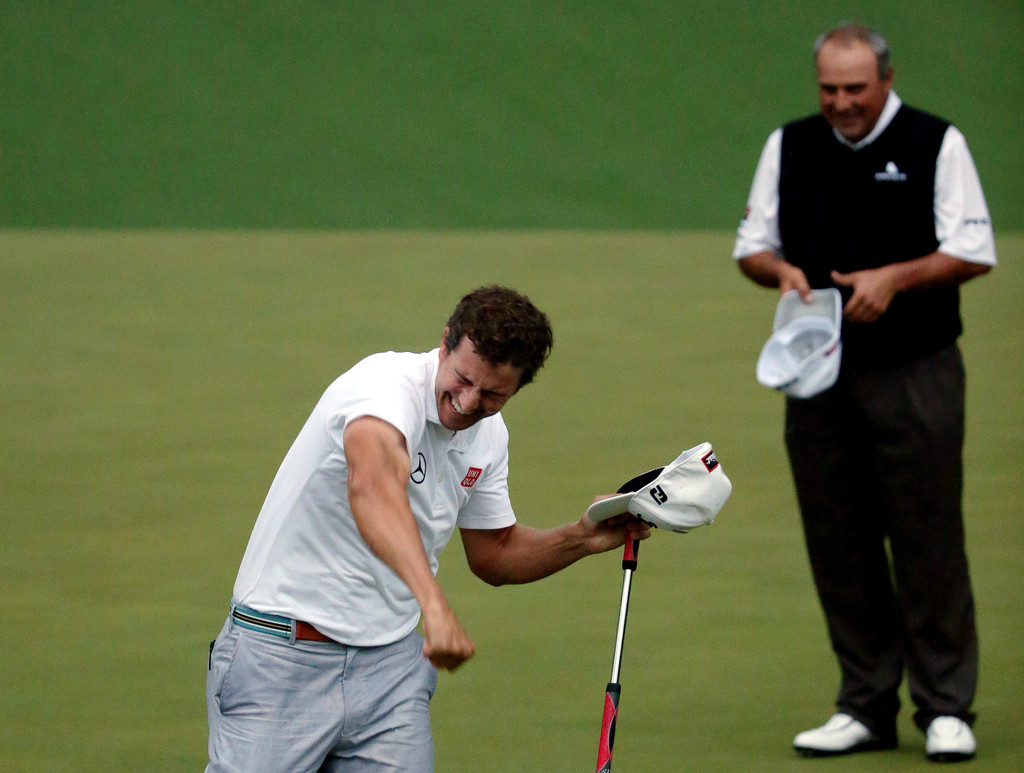(The Verge) – In a little over a month, millions of us will be going to the polls to cast our vote for President of the United States. An ideal image of this “President” seems to vary from election to election, as was made clear when millions backed Barack Obama’s Hope and Change appeal in 2008. Americans want a personable, iconic figure as Commander-in-Chief. So today, before we rush to check off (D) or (R) on the ballot in November, I’d like to bring forth a historical perspective of a man who seemingly never had to work hard to achieve this coolness. He was born with charisma and carried around with him a bit of frontier spirit, and never shied away from life’s many battles. This man, was our 26th President; Mr. Theodore Roosevelt.
Born of multiple talents, Roosevelt became a writer, historian, explorer, police commissioner, frontiersman, cowboy, Colonel of a cavalry regiment and of course, unparalleled politician. But, (and this is a big one), there are two elements that make him the biggest American ‘badass’ of all-time. These were his time as a cowboy, and his involvement in the Spanish-American War.
Before I can explain to you why you’ll want to pick up any relative piece of literature on this icon, it’s best to give a brief biography of the man whose face would later be carved onto Mt. Rushmore.
Born in 1858 in New York City, Roosevelt grew up with three siblings and became very interested in science and history. Later studying at Harvard, Roosevelt pursued multiple interests while also becoming a prominent historian on the naval history of The War of 1812. He entered the Columbia Law School in 1880 but dropped out a year later to pursue a political career. His first wife (whom he had one child with) died of kidney failure and his mother died of typhoid fever on the same day in the same house.

As a New York State Assemblyman, he attended the Republican National Convention in 1884 but fled west afterwards feeling disillusioned with party politics. For the next few years he lived in the Badlands in the Dakota Territory. Returning in 1886, he lost the mayoral race for New York City and then married Edith Carow while in London (whom he had five children with).
He served on the Civil Service Commission under Benjamin Harrison and Grover Cleveland, New York City Police Commissioner, and then Assistant Secretary of the Navy under William McKinley. He resigned to this position at the start of the Spanish-American War in 1898 where he then became the creator and Colonel of the nation’s first volunteer cavalry regiment, known as the Rough Riders.
Returning from battle in Cuba as a war hero, he won the governorship in New York and then a VP spot on William McKinley’s reelection ticket in 1901. Becoming the nation’s 25th Vice President, he served for only six months because in September of 1901, William McKinley was assassinated by a gunman in Buffalo, New York. Roosevelt was sworn in as President on September 14th by a U.S. District Judge in Buffalo just hours after McKinley died.
As President, Roosevelt believed in keeping government as an arbiter in business, and breaking up trusts. He brought the U.S. deeper into world politics, gloated the American Naval fleet, pledged to build the Panama Canal, protected wildlife, expanded national parks, engaged in massive irrigation projects, and passed legislation to improve America’s food inspection and food/drug contents after the muckraking era of journalism. He also did this while winning a by a landslide in the 1904 election. Next, he saw the admittance of Oklahoma into the union, and won a Nobel Peace prize for ending the Russo-Japanese War (one of three sitting presidents to have this honor).
He decided not to run for a second full term as President, and instead went on an African Safari with a large team to engage in big game hunting for research. But once William Howard Taft, president from 1908-1912, started to disappoint and humiliate the former president, Roosevelt returned to the states and politics and vowed to run again in 1912. He saw it was too late to receive the Republican nomination so instead, created the “Bull-Moose” party and ran as a progressive.
On the campaign trail, he was shot in the chest by a fanatic, with only a thick speech and eyeglass case sparing him from further medical harm. It was too risky to remove the bullet so he carried it around in him for the rest of his life. He lost that election to Woodrow Wilson, but was one of the most successful third party candidates of all time and took a fascinating amount of votes away from Taft who was running on the Republican ticket.
He wasted no time after the loss and went on a South American expedition in 1913. Here he explored new rivers and once again lived life on the edge, still continuing the trip after his health got progressively worse from old injuries and tropical fever.
When World War I broke out, he avidly supported the Allies, continued to campaign for Republican nominees and sought to create a volunteer infantry division, even in his poor health. (President Wilson denied this). He lost a son in the war, continued to back Republican presidential candidates, including his old war friend, General Leonard Wood, who lost to Warren G. Harding.
Roosevelt remained active even with his rapidly declining health, but on January 6, 1919, he died in his sleep of a heart attack at his home in New York at the age of 60.

As if this story wasn’t enough to make your jaw drop, I’d just like to reevaluate two of the elements I’ve found most unique about this American hero…ya’ really can’t get much cooler.
As a member of the Badlands in the Dakota Territory, Roosevelt lived the life of a cowboy on the never-predictable American frontier. He hunted, rode horse-back, built a ranch, and served as deputy sheriff where he hunted down outlaws like you would see in an American western film. He planned to stay out there for a considerable amount of time but the life of a cowboy was cut short when an unseasonably cold winter ruined his investments. So, he figured he’d go back to New York with his cowboy persona. But, never have we had such a unique log cabin-President.
Roosevelt later abandoned his post in the Navy to create a cavalry unit of his own to fight in Cuba against the Spanish. Putting together a volunteer group of horseman, he led the charge of these Rough Riders in the Battles of Kettle and San Juan Hill. Being the only man on horseback, he eventually scaled the hill with his other men. He was later awarded the Medal of Honor for his efforts in safeguarding his regiment, which was declined but given to him posthumously in 2001. Talk about loyalty….
So when you see a future candidate with some impressive credentials, just remember that chances are, Teddy Roosevelt’s were just a bit better.





Your article about Teddy Roosevelt was excellent. I liked reading about our 26th (Bad Ass) president. The Verge Rocks ! Keep up the great work !
Your article”speak softly & carry a big stick” was excellent !
I enjoyed learning about our 26th (Bad ASS) President!LOL I’m looking foward to your next article. The Verge Kicks Ass !